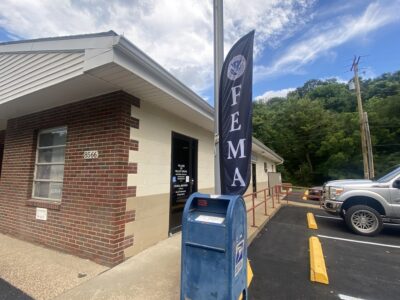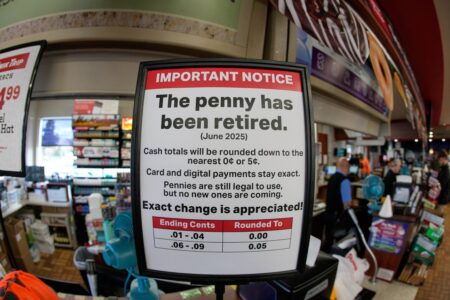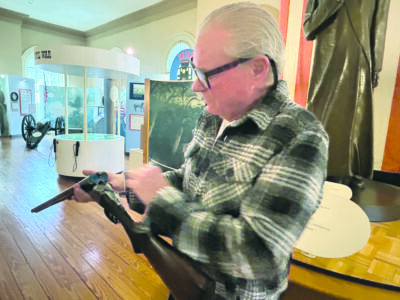Officials: Beware of FEMA Impersonators

photo by: Derek Redd
A FEMA flag flies outside the Valley Grove Community Center on Monday.
From STAFF REPORTS
WHEELING — Scams involving people impersonating FEMA workers have begun surfacing in areas hit by floods over the Father’s Day weekend, according to the West Virginia Attorney General’s office, and people should be careful to whom they give donations or personal information.
West Virginia Attorney General JB McCuskey said residents should report any potential scams attempting to take advantage of flood victims. FEMA workers have been in Ohio and Marion counties following the deadly June floods, and FEMA disaster recovery centers are now operational in those counties.
Yet reports are surfacing of con artists posing as FEMA employees.
“During disasters we often see the best in West Virginians–our generosity and volunteerism is second to none,” McCuskey said. “But unfortunately, it’s also a time when bad actors try to take advantage of that generosity and of the urgent need of people trying to put their lives back together. We remind everyone to be cautious and ask questions before donating or giving out personal information.”
Ohio County Sheriff Nelson Croft said his office has not yet received reports of FEMA impersonators in the county, but residents should stay vigilant.
“There will be people representing FEMA in the area,” Croft said, “but they will be carrying official identification.”
That official ID is one way to discern between FEMA staff and scammers. FEMA staff and contractors always carry official badges with their names and photos. FEMA-branded clothing is not enough proof, officials said, and residents should ask to see their badges and verify their identities.
Other ways to identify scams include:
– Requests for Money — FEMA will never ask for money for disaster assistance services. Don’t trust someone who asks for money. Don’t believe anyone who promises a disaster grant and asks for cash deposits or advance payments in full.
– Unexpected calls or texts — FEMA only contacts individuals who have applied for assistance. Be wary of unexpected calls or texts, especially those demanding personal information.
– Personal Information — FEMA will never ask for your Social Security number or banking information during an inspection or the application process.
– Question Endorsements or Referrals — FEMA does not endorse any commercial business or product and legitimate FEMA staff will never ask for money for services for aid or other services.
– Verify Information and Report Anything Suspicious — If you receive a suspicious email, text or phone call or if a FEMA inspector comes to your home and you have not filed a FEMA application, contact FEMA’s Helpline at 1-800-621-FEMA (3362) from 7 a.m. to 11 p.m. to verify the legitimacy.
FEMA inspectors only require verification of identity, and not your FEMA registration number, Social Security number, or similar personal data. Anyone with questions should call the Consumer Protection Division of the West Virginia Attorney General’s Office at 800-368-8808.
To file a report online, visit www.ago.wv.gov. Croft said anyone who believes they have experienced a scam can also call his office at 304-234-3680.




